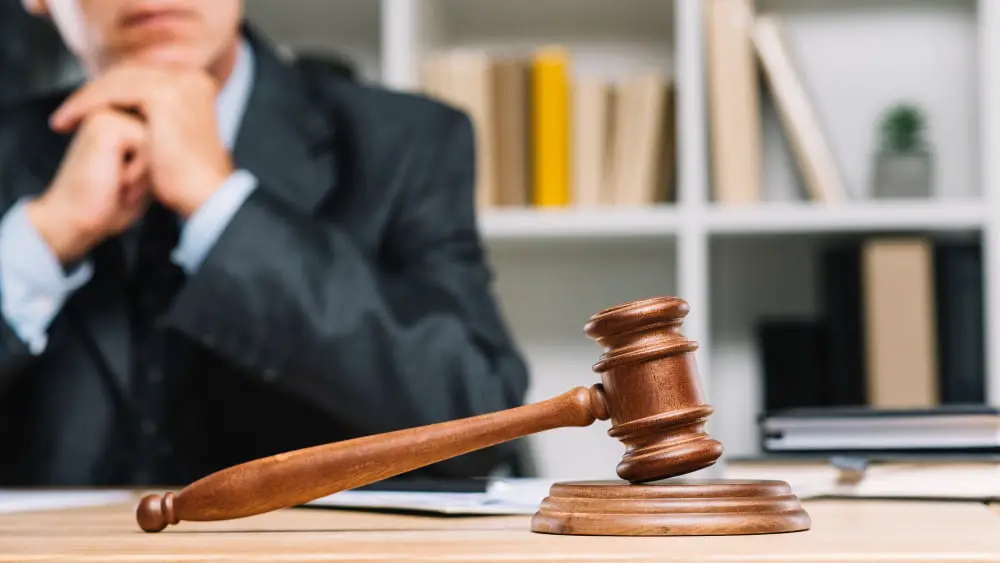Last updated on
Encountering the criminal justice system can be one of the most daunting experiences of one’s life. Mistakes made during this critical time can have lasting repercussions on your case and overall future. Understanding the legal battlefield and maneuvering through it cautiously is essential to ensuring the best possible outcome. This blog post outlines five common mistakes people often make when facing criminal charges and how to sidestep them.
Not Hiring a Qualified Criminal Attorney

Attempting to navigate the complexities of the criminal justice system without professional legal assistance is akin to walking a tightrope without a safety net. Some defendants may underestimate the severity of their situation or overestimate their ability to represent themselves in court. This can lead to inadequate representation, missed legal strategies, and overlooked procedural rights that a qualified criminal attorney would routinely safeguard.
Hiring a seasoned criminal attorney can mean a favorable or adverse outcome. They have specialized criminal law knowledge and experience with the court system, enabling them to craft a defense tailored to your case’s particulars. Furthermore, working with a criminal attorney in Madison, WI, can ensure familiarity with local laws and judges, which can prove advantageous in court. By leveraging their expertise, you can drastically increase your chances of a positive outcome.
Talking to Law Enforcement Without a Lawyer
It’s an instinct to want to explain your side of the story to law enforcement, but doing so without legal representation can be a grave misstep. Anything you say can be used against you in court, and you need to understand the nuances of the law to avoid inadvertently harming your case. Law enforcement officials are skilled in interrogation and may use techniques to elicit responses that could be misconstrued or taken out of context.
Having an experienced criminal attorney by your side during any interaction with the police is crucial. They can guide you on what information you must provide and what questions should be met with silence. Remember, it is your right to have an attorney present during questioning, and exercising this right should be your priority when detained or questioned by the police.
Not Understanding Your Rights

Many individuals feel overwhelmed and intimidated when facing the justice system, which can lead to a critical oversight: not fully understanding their rights. The Constitution provides several protections for those accused of a crime, including the right to remain silent and the presumption of innocence until proven guilty. Defendants need to recognize these rights and comprehend their scope and limitations.
A common consequence of this lack is inadvertent self-incrimination or consenting to searches and seizures that could be constitutionally questionable. Knowledge of one’s rights affords the clarity to make informed decisions, such as whether to consent to a search or how to respond to probing questions. It’s essential to have an experienced criminal attorney explain your rights and how they apply to the specifics of your case.
Ignoring or Delaying Legal Action
Ignoring or delaying legal action when faced with criminal charges can have detrimental consequences. Time is critical in preparing a defense, and procrastination can handicap your attorney’s ability to gather evidence, contact witnesses, and strategize effectively. The legal system has stringent deadlines for filings and other procedural necessities that, if missed, could severely limit your defense options or, in the worst cases, lead to an automatic guilty verdict.
Engaging with a legal professional early on protects your rights and interests. They ensure proper protocol during investigations and prevent unjust evidence. They can negotiate bail, plea deals, or even get charges dropped pre-formal charges. Immediate legal involvement is crucial for navigating the criminal justice system with minimal fallout.
Not Documenting Everything
Thoroughly documenting interactions and evidence is crucial for your case. From the moment of arrest or detention, keeping a log of events, conversations, and materials pays off in the defense process. This includes recording names, badge numbers, times, locations, and content of conversations with law enforcement. Detailed documentation is essential to avoid missing key facts or evidentiary points that could strengthen your defense or challenge questionable procedures by the authorities.
Preserving any physical evidence and witness testimony that may support your case is imperative. Collect contact information for witnesses as soon as possible since memories can fade and individuals may become unreachable. An attorney can aid in the documentation process, ensuring a thorough record is maintained, which is critical for recalling events accurately and challenging the prosecution’s case during legal proceedings.
Talking to Others about Your Case
During this challenging time, seeking support and discussing your situation with loved ones is natural. However, sharing details about your legal case outside your legal team comes with risks. Conversations with anyone other than your attorney aren’t protected by attorney-client privilege. This means that anything you say could be used against you as evidence. Well-intentioned comments can be misinterpreted or relayed inaccurately, complicating your defense.
Moreover, even casual remarks on social media platforms can become part of the prosecutorial narrative against you. It’s imperative to understand that prosecutors may meticulously comb through your digital footprint, seeking any information that could be used to establish motives or contradict your statements. It’s safest to maintain silence on the details of your case and reserve discussions for confidential interactions with your legal counsel.
Disregarding Court Etiquette and Instructions
Courtrooms have unique protocols and expectations, and failing to adhere to them can unfavorably impact a judge’s perception of your character. Disregarding court etiquette, such as dressing inappropriately, speaking out of turn, or disrespecting the court personnel, can have negative implications for your case. It is essential to understand that the courtroom is a place of solemnity and respect; thus, one’s demeanor and attitude should reflect that understanding.
Failing to follow the judge’s instructions is a severe mistake that should not be taken lightly. These instructions can include adhering to bail conditions or submitting documents within a specified timeframe. Compliance with these directives is crucial for your case’s logistics and showing respect for the legal process. Noncompliance can be seen as contemptuous behavior, which may result in additional charges or penalties, further complicating your legal situation.
Facing criminal charges is an unnerving adventure filled with potential pitfalls. By avoiding these common mistakes, you bolster your defense and improve your chances of resolving the case on the best terms possible. If you are in such a predicament, remember that the importance of informed and immediate legal advice must be balanced. Legal expertise is not just a resource—it’s your right.
Recap




